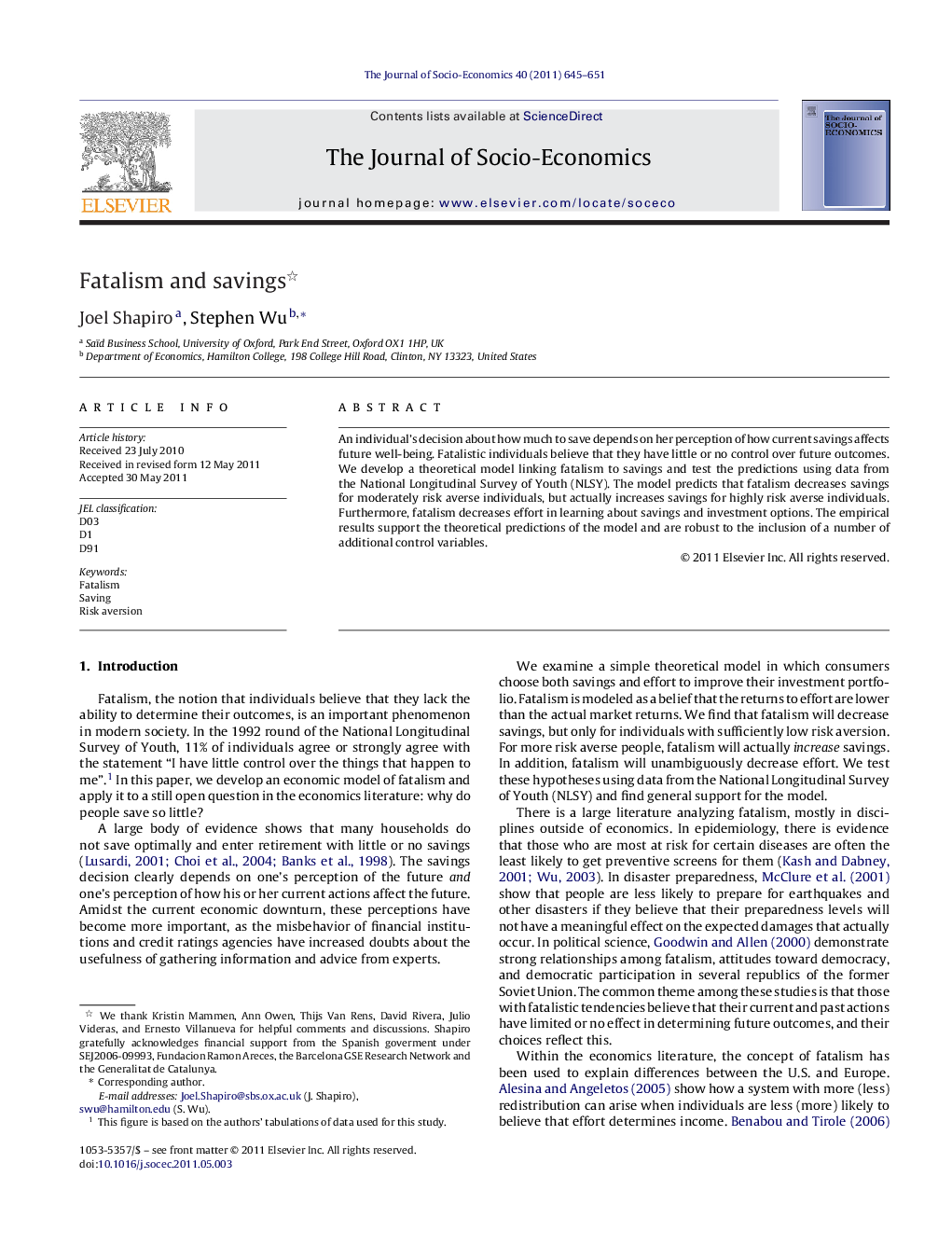| Article ID | Journal | Published Year | Pages | File Type |
|---|---|---|---|---|
| 971314 | The Journal of Socio-Economics | 2011 | 7 Pages |
An individual’s decision about how much to save depends on her perception of how current savings affects future well-being. Fatalistic individuals believe that they have little or no control over future outcomes. We develop a theoretical model linking fatalism to savings and test the predictions using data from the National Longitudinal Survey of Youth (NLSY). The model predicts that fatalism decreases savings for moderately risk averse individuals, but actually increases savings for highly risk averse individuals. Furthermore, fatalism decreases effort in learning about savings and investment options. The empirical results support the theoretical predictions of the model and are robust to the inclusion of a number of additional control variables.
► We incorporate fatalism into a model of individual savings. ► Fatalistic individuals believe they have little control over their future outcomes. ► Fatalism increases savings if individuals are moderately risk averse. ► Fatalism decreases savings if individuals are highly risk averse. ► Fatalism decreases effort in learning about savings and investment.
